Dow Jones - the US stock index dropped 1,100 points after the Fed's decision. Domestically, VN-Index just opened for more than ten minutes and 'evaporated' 11 points, hundreds of stocks in red.
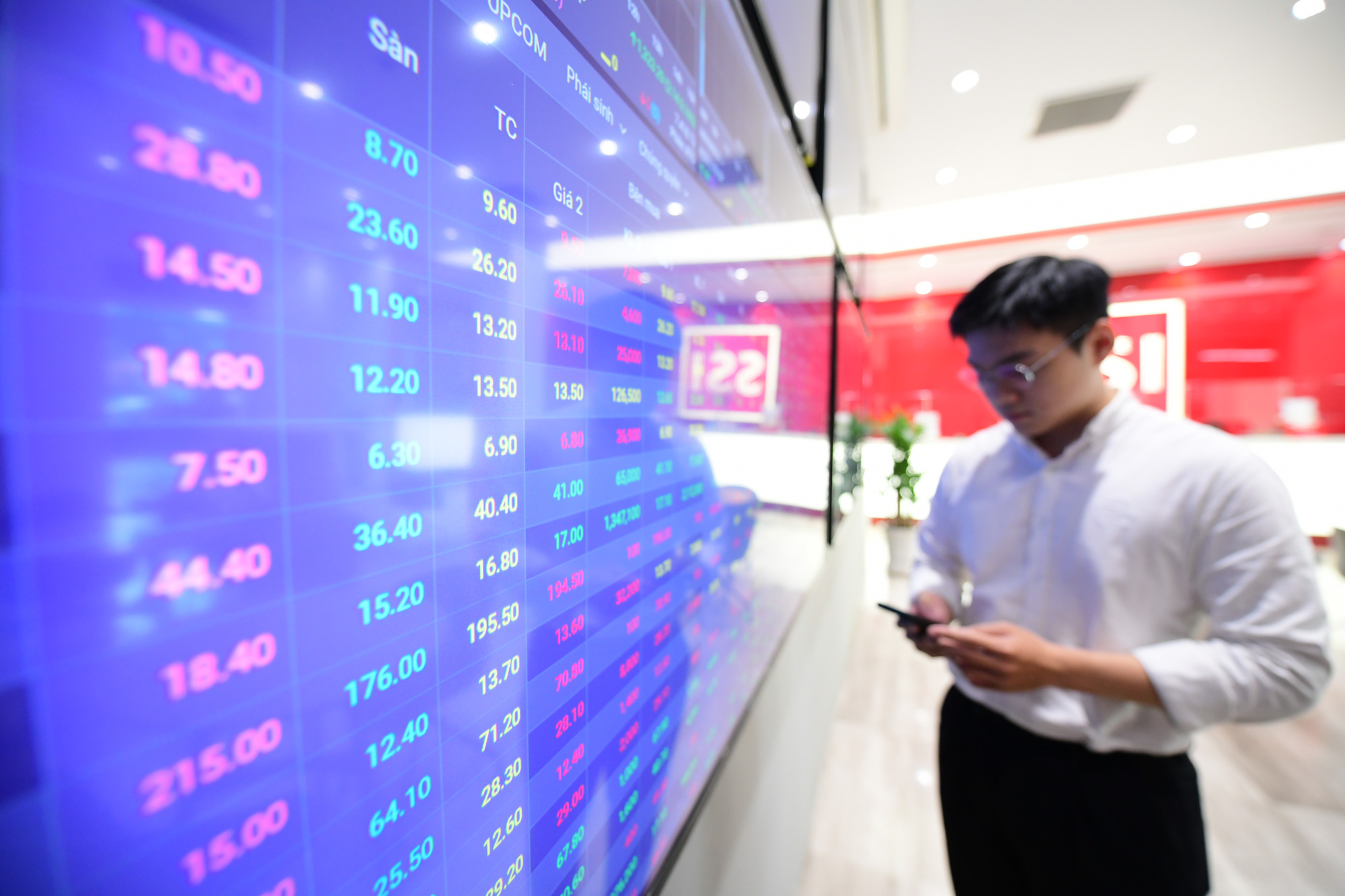
Domestic stock market reacts negatively after Fed's move - Photo: QUANG DINH
The Vietnamese stock market opened this morning's trading session (December 19) in a rather negative sentiment.
Bank stocks, securities covered in red
After just over 10 minutes, the VN-Index was "blown away" by nearly 11 points. On the HoSE, nearly 300 stocks decreased in price, and on the "fingers" of one hand, more than 20 stocks remained green. All stocks in the VN30 were covered in red.
The most pessimistic group this morning is the banking securities group, when most codes decreased points due to great selling pressure.
At 9:30 a.m., many bank stocks decreased by more than 1% such as VPB of VPBank, MBB of MBBank, CTG of VietinBank, HDB of HDBank, EIB of Eximbank, STB of Sacombank, MSB... In the securities group, many codes also decreased sharply by more than 1% such as SSI, VIX, SHS, FTS, VCI, HCM, VND...
If counting all 3 floors, there are nearly 400 stocks in red, in contrast to more than 100 stocks in green, there are more than 1,000 stocks standing still at reference.
Foreign investors net sold nearly 200 billion VND after only 45 minutes of the morning session, raising the cumulative net selling since the beginning of the year to nearly 95,000 billion VND.
Updated at around 10am, the market is gradually balancing, investors are less "panic". More stocks are returning to green. On the HoSE alone, more than 60 stocks have increased again.
According to investors, the negative performance since the market opened this morning was mainly due to the impact of information after the Fed's policy meeting.
Although the agency announced a further 25 basis point (0.25%) reduction in the reference interest rate to 4.25-4.5%, it also signaled a more cautious stance on monetary easing next year.
The total reduction in 2025 could be just 50 basis points, given that the labor market remains solid and inflation has not cooled much recently.
Looking at the US market, at the end of the trading session on December 18, the Dow Jones index fell 1,123.03 points after the Fed's decision. This is also the second time this year that the index has lost more than 1,000 points in a trading session.
Watching the moves from the Fed, the Trump administration
The signal from the Fed worries not only US investors but also the whole world, and Vietnam is no exception.
At stock groups, stockbrokers and investment consultants reassured customers that the VN-Index opened lower following the global effect, but mainly due to psychological issues. After that, the market will gradually return to balance, because this development has been rumored and partly reflected in the previous index.
As soon as Donald Trump was elected, many organizations also raised their inflation forecasts for next year. As inflation cools slowly, this will cause the Fed to slow down its monetary easing. Many parties even speculate that the Fed may stop cutting interest rates at the meeting at the end of January 2025.
Mr. Dong Thanh Tuan - analyst at Mirae Asset Vietnam Securities, said that since the beginning of the year, the exchange rate has increased by 4.27%.
The State Bank has had to regulate liquidity through treasury bills from open market operations (OMO) and reverse repurchase agreements (RRP).
Meanwhile, Vietnam's foreign exchange reserves currently remain low and are equivalent to about 2.4 months of imports as of August 2024 - below the minimum recommended standard of 3 months according to the IMF.
However, according to Mr. Tuan, the outlook in December is expected to be somewhat brighter due to support from foreign currency flowing into Vietnam (abundant remittances and a continuously expanding trade surplus)...
Mr. Tuan pointed out many external factors that could bring risks that need to be monitored for the stock market. Among them are the impacts of new tariff policies during the second term of President Donald Trump.
In addition, persistent inflation in developed markets along with the "hawkish" stance of the Bank of Japan will be potential challenges as it simultaneously prolongs the Fed's interest rate cut roadmap and triggers a reversal signal of "carry trade" capital flows (investment based on interest rate differentials between currencies) while investment capital continues to flow to the US market.
Source: https://tuoitre.vn/chung-khoan-viet-chao-dao-sau-it-phut-mo-cua-chuyen-gi-xay-ra-20241219095955408.htm










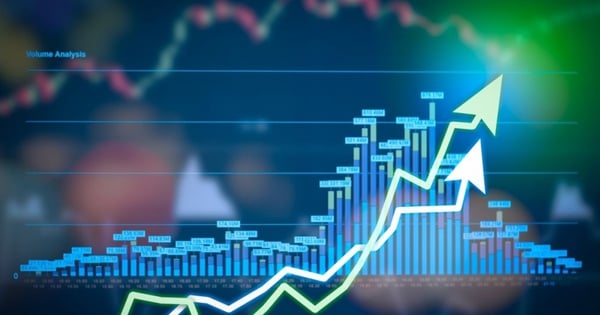

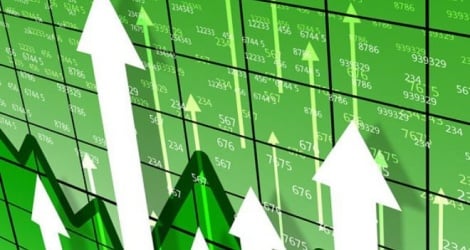
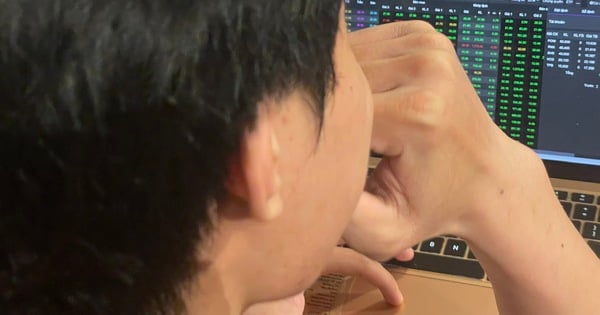
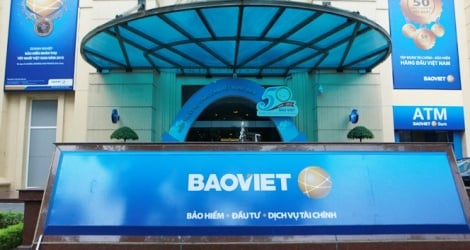





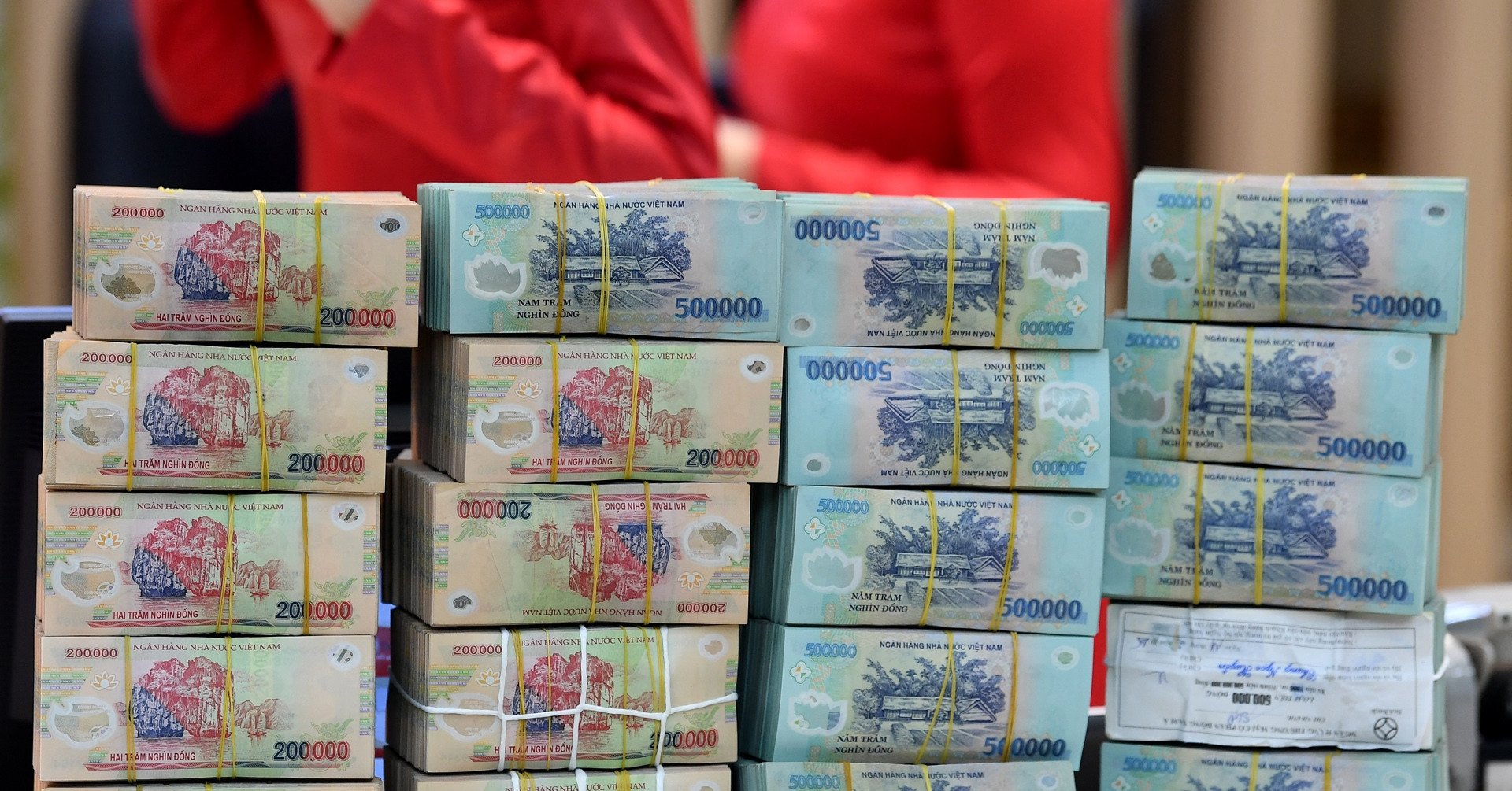


















Comment (0)